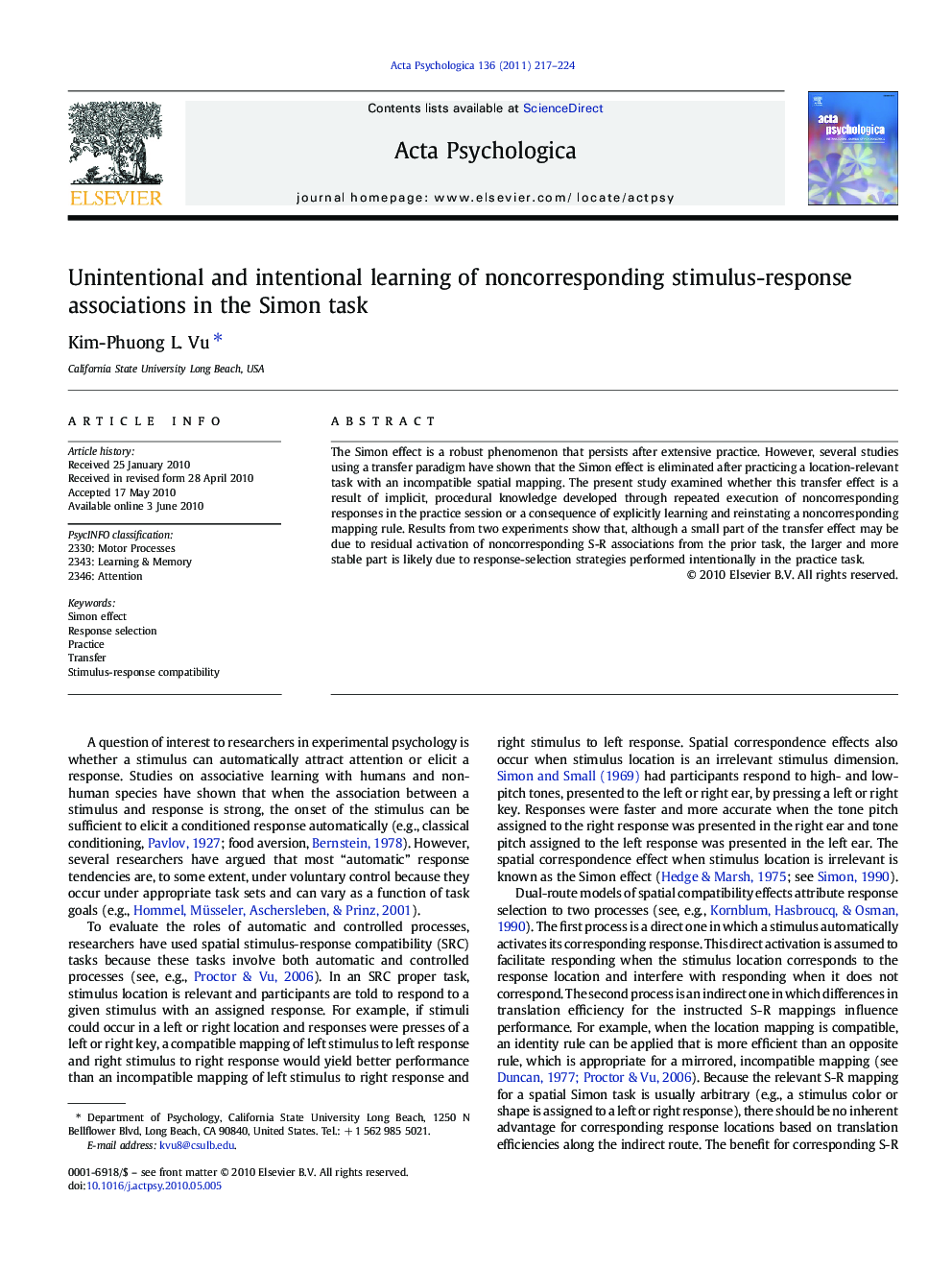| Article ID | Journal | Published Year | Pages | File Type |
|---|---|---|---|---|
| 920231 | Acta Psychologica | 2011 | 8 Pages |
The Simon effect is a robust phenomenon that persists after extensive practice. However, several studies using a transfer paradigm have shown that the Simon effect is eliminated after practicing a location-relevant task with an incompatible spatial mapping. The present study examined whether this transfer effect is a result of implicit, procedural knowledge developed through repeated execution of noncorresponding responses in the practice session or a consequence of explicitly learning and reinstating a noncorresponding mapping rule. Results from two experiments show that, although a small part of the transfer effect may be due to residual activation of noncorresponding S-R associations from the prior task, the larger and more stable part is likely due to response-selection strategies performed intentionally in the practice task.
